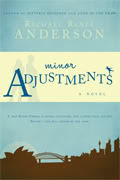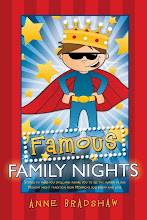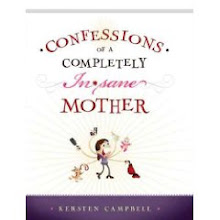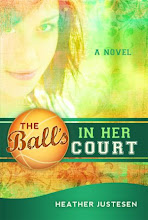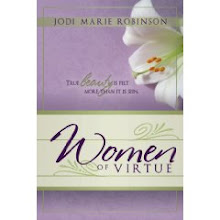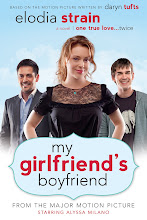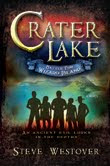
We all write for different reasons and have different goals, but hopefully we all find joy in the work. Otherwise, why bother. Writing can be a hair yanking test of patience and disappointment, so when we have opportunities to celebrate, we should. I thought I would share a few of the things I enjoy about my newfound hobby of writing. Here's the top 5 countdown.
5- Writing keeps me occupied with a meaningful project and challenges my mind
4- Writing allows me private time to think and let my imagination wander
3- Writing allows me the time I need to articulate my ideas in an intelligible way, instead of rambling incoherently like I do when I speak.
2- It is SOOOO rewarding to hear from a reader who enjoyed the book or who learned a meaningful lesson. This is true whether it is a family member or a complete stranger.
1- It feels GREAT to hold that book in my hands for the first time, thumb through the pages and stare at the cover. It's a sense of accomplishment that is hard to match. In short, writing is one way I have found to magnify a talent.
Why do you write? What about writing is most fulfilling for you and where do you find the most joy?
Wednesday, February 29, 2012
The Joy of Writing
Posted by Steve Westover at 7:29 AM 7 comments
Labels: Crater Lake, Crater Lake: Battle for Wizard Island, joy, writing
Tuesday, February 28, 2012
Getting Back to Business after a Year Leave
I've been off-line for a year but now I'm back, and I'd like to share my year-long experience with you, if you don't mind. It's been a year full of surprises, hard work, laughter, worry . . . and I might add more that just a little stressful at times.
I was helping with my mother when I was asked by the Heritage Choir Board to be the committee chairman for a musical production representing the Southern Utah Heritage Choir. Couldn't I have said, "No?' No! I don't know how. Instead, I said "Okay," but I'll need a good committee."
I was given 6 committee members. But when they realized the time and work involved, they quietly backed away. But that wasn't a bad thing, in the long run because two women agreed to step and take their place beside me.
DeAnne is a retired music teacher from California, who had also been involved in musical production. Jeanine is a business woman who knows how to take care of scheduling, advertising, and whatever she needs to do to make a project work. Together we set our course.
The plan was to honor three pioneers, who were among the first to settle St. George. Once the research was done, I began to write the script. Writing a script for a musical is an on going adventure, and is only finalized during dress rehearsal. After the skeleton script was finished, it was time for auditions. Auditions went well. All of the adult characters were Choir members. Most of the 18 children and young teens were grandchildren of choir members.
Then came the practices with the actors, the musicians, the singers and the dancers. The musicians included four siblings who played the violin. The oldest is a 13 year old girl, then the 7 year old twins (boy and girl) and finally, the 5 year old girl. They were incredible and so professional. Then there was the professional flute player from Salt Lake city, Wow! he could make the flute sound like any musical instrument.(The only drawback here was that he couldn't be there to practice until the night before the performance.) We had a professional dance teacher to work with the children and the only thing we had left to do was to make sure the production was as professional as they were.
As the months went by everything was coming together, but we had no place to work a full practice when we needed it, so another helpful friend set up rehearsals in her ward gym. Our first practice on the stage at the Cox Theater in St. George was two days before the performance. We were told, in the beginning, that we would four days. Not so. But that didn't hold us back. Everyone worked very hard with the time we had to practice. We didn't have the choir with us until the night before the performance.
I have to interrupt myself here to explain something. Those singing in the choir hadn't expected such a professional show and were so impressed. The choir conductor didn't think we could pull it off without him being in control. He pictured a roadshow and told the choir that it wasn't important enough for all of them to be there if they didn't want to come. (though most of them were there, to our delight). In fact he had his assistant director direct the choir because I believe he didn't want his name connected with a failure. (don't tell anyone I told you that).
Our last, big concern was that we wouldn't have an audience. But our concern was unwarranted. In the Cox Theatre at Dixie State College, that night, there were only a few empty seats. The musical went so well that it brought tears to my eyes. Everyone--the children singing and dancing, the violinists, the actors in the three vignettes honoring the three pioneers, the choir, the flutist, and everything went without a flaw. The audience loved it. Just goes to show you what you can do with the Lord's help.
In comparing this experience to that of being an author, I think if some says, "I really don't think you can make it work." Just smile and reply, "I'll show you."
As authors we have to have an attitude. We have to have faith in ourselves and not allow anyone to tell us what we can and cannot accomplish if we want success bad enough to give our best in order to have success.
What are your thoughts?
Posted by JoAnn Arnold at 12:51 AM 1 comments
Tuesday, February 21, 2012
Learning from Reviews
by Rebecca Talley
I recently received a rating and review on Goodreads for my book, The Upside of Down. Receiving a review, bad or good, isn't unusual. Goodreads was established for readers to rate and review books. This review, however, piqued my interest.
The reviewer started it off by saying this wasn't her favorite book and she couldn't decide to rate it 4 or 5 stars. She then went on to pick out specific examples of what she liked or didn't like. These are the kinds of reviews that are most helpful to me because I can then evaluate the comments and seek to better my writing.
After I finished reading the review, with plenty of things the reader didn't like, I realized something. She had been affected by what I wrote. My words had elicited a response. And that's the point.
We write to affect people. Even if that effect isn't what we hope, the fact that someone else thought about our words, our stories, makes the effort worthwhile. Having people think about our stories after they have finished means we have struck something inside of them. Even if it moves them in a negative way, we still moved them with our words. We made them think.
Of course, we all hope to move readers in a positive way and hope that our stories will resonate in a good way. Truth be told, we hope that everyone who reads our works will love and adore them. But, they won't. And that's okay. As writers, we need to learn to have thick skin. We need to learn to take what we can from good and bad reviews so that we can eventually become the kind of writer we want to become.
I found this particular review intriguing because it seemed as though the reader didn't enjoy my book, yet she couldn't decide whether to give it 4 or 5 stars--a high rating. I actually learned quite a bit from this review, including that different people have different ways of looking at things. When we write, we do so from our unique perspective on the world (which is why 10 writers with the same prompt would write 10 completely different stories). We write from where we've been, how we've learned, and from experiences that we've gained throughout our lives. We create stories and characters based on our own unique understanding of the world around us. I think that's why certain stories resonate with certain people.
I appreciate reviews. I appreciate readers who take the time to express their reactions, good and bad, so I can learn from them. A review isn't a personal attack (usually) but rather a commentary on how our words affected that person. If we can learn from reviews we are on our way to becoming better writers.
Posted by Rebecca Talley at 8:50 AM 3 comments
Labels: Book Reviews, Goodreads, Improving Writing Skills
Monday, February 20, 2012
Becoming a Student of Human Nature
This May, I have the opportunity to present a class on character development at the LDStorymakers Conference. The class will be called Culture, Motivation, Flaws, and a Cat: Four things every great character needs.
As I've worked on preparing for this class, I realized that I've always been curious about other people, and what makes them think and act and behave so very differently from each other.
This is not to say that I've always been able to understand everyone, however. In fact for most of my life I found it nearly impossible to understand what others were really thinking and feeling, especially since most people seemed to think so differently from me. This is probably why I spent so much time and effort trying to figure out why others act the way they do. And why I enjoy exploring the actions and motivations of the characters in my writing -- my "imaginary friends," if you will.
Now that I have a bit more experience at life, I find it is much easier to understand those around me. I recently read a quote by actress Thandie Newton that I think explains the reason perfectly. She said, "One of the special things about the creative world is that you can turn your discomfort into empathy. You explore the lives of other people and different modes of thinking, and that opens you up."
As writers, it is essential that we seek to understand and have empathy for the people around us, including (dare I say especially) those with whom we disagree. The ability to put ourselves in another's shoes, to understand their thoughts and feelings and motivations, is critical to us understanding and writing characters that will resonate and connect with our readers.
We all need to become students of human nature.
Posted by Don at 8:00 AM 2 comments
Labels: characters, Donald J Carey
Sunday, February 12, 2012
2012 Puddly Awards
by Trina Boice
www.trinaboice.com
While I dream of having one of those cool personal libraries so large that it requires a ladder to reach the top shelves, my husband is in the anti-clutter mode, so I have been selling my old books online, using www.bookscouter.com to find the best prices.
One of the companies that buys back books is Powell's, creator of the "Puddly Awards", their version of the Oscars for books. They ask their readers to determine which titles were their favorites during the previous year. Here are the results for their 2012 awards:
Best Fiction: The Help by Kathryn Stockett
You can purchase The Help on Amazon for under $12.
Best Nonfiction: Unbroken by Laura Hillenbrand
Unbroken is on sale on Amazon for $11.00
Have you read either of those two books? I have to confess that I only had time to see the movie "The Help" but I absolutely loved it. Some of the actresses in the flick are already slated to win an Oscar. What did YOU think of the book? How did it compare to the movie?
How about "Unbroken"? I haven't talked to anyone who has read it. Have you? What did you think? Do I need to carve out some time to read it because it's that good?
If we were to give awards here on "The Writing Fortress", which books would YOU choose to win?
Posted by Movie Review Mom at 1:09 AM 0 comments
Labels: Best fiction, best nonfiction, bookscouter.com, kathryn stockett, laura hillenbrand, powells, puddly award, the help, Trina Boice, unbroken
Tuesday, February 7, 2012
Conflict
by Rebecca Talley
When we think of conflict, we tend to think it has to involve yelling, fighting, and/or two opposing forces ready to kill each other. While those situations would definitely involve conflict, there is a simple definition that may change the way you see conflict.
Conflict arises when someone, or something, prevents a character from attaining his goal.
To understand conflict, you must first understand your character's goal for the scene. You must be able to pinpoint what it is that your character wants for each scene. Maybe your character wants to get some information about a suspect (goal) but on the way over to see this suspect has a flat tire (conflict). Or, perhaps your character wants to propose marriage in a scene (goal) but loses the ring (conflict). Maybe your character wants to leave a restaurant (goal) but someone has a gun pointed at him (conflict).
Scenes must contain some kind of conflict or they're merely a day-in-the-life travelogue. Readers don't want to know what someone ate for dinner unless the soup was laced with a poison nor does anyone want to read about a character folding laundry unless she discovers a lipstick mark on her husband's collar.
Conflict must be present to make it a scene and to make the scene worth reading. If you include conflict in every scene, whether it's inward or outward conflict, readers will turn from scene to scene anxious to read the whole book. And then you'll have a story known as a "page-turner."
Posted by Rebecca Talley at 10:00 AM 1 comments
Labels: Book Writing, Conflict, writing fiction, Writing Tips
Wednesday, February 1, 2012
FOR IMEDIATE RELEASE

Today I wanted to share a couple of thoughts about issuing a press release for a new book. There are a few elements that a press release contain.
Urgency of the news- “For Immediate Release” tells them they can run the story NOW.
What is the story? The release of this new book and what the book is about.
About the Author- Help the media outlets get to know you a little bit.
Contact Info- Tell the media outlet how they can contact you or your publisher if they’re interested in doing a story or interview.
To whom should I send the press release? Work with your publisher as they will likely be issuing a Press Release about the book to certain media outlets. It’s rarely a problem if both the publisher and the author sends a release to the same outlet, but be organized and coordinate your efforts. Is there a specific audience you’re trying to reach? In the example of my Crater Lake book I targeted media in Missouri (where I live) approaching it from the “local author” angle. My publisher has close relationships with media in Utah where they are based so they took care of that market. I also focused my attention on the media in Oregon because Crater Lake is a landmark for the state and there will be local interest there because of the subject.
I’ve contacted newspapers, both large and small, radio stations offering to do interviews, and even TV stations. Not all outlets contacted will run the story, but some will. Target your media outlets strategically but also make sure you spread a wide enough net to catch all the outlets that may be interested. Once initial contact has been made, via email or phone, giving the outlet a copy of your book cover and the Press Release. Then follow-up becomes important, emailing again and even calling the outlets to see if they’ve received it and if they have any questions. This may seem a little bit overbearing, but who cares. It’s the media. They are the kings of overbearing and this is definitely a situation where the squeaky wheel can get the grease.
One last thought. In addition to media outlets, also make it a priority to contact book sellers in the target area who may also have an interest in the book. In my case I’ve targeted bookstores local to Crater Lake and even the Crater Lake gift shop asking them to carry the book. Hopefully they will see that it is a win-win for both of us. Here’s an example of a Press Release I worked on with my publisher.
FOR IMMEDIATE RELEASE
Steve Westover’s new book to be released March 2012 - Crater Lake: Battle for Wizard Island
1/31/12—KANSAS CITY, Missouri—Steve Westover, author of the FBI thriller Defensive Tactics (August 2010), announces the release of his first youth novel, Crater Lake: Battle for Wizard Island, March 13, 2012, available in hard back at selected bookstores and online at Amazon, Barns & Noble, and WalMart.
Crater Lake is a thrilling adventure about thirteen-year-old Ethan, whose world collapses around him when his parents and all other adults disappear while the family is visiting his crazy uncle at Crater Lake National Park.
Westover delves into the mystical legends of Native American tribes local to Crater Lake to craft his story. Set in modern times, Ethan’s life is thrown into turmoil when all the adults at Crater Lake are devoured into an earthen prison. He must dig deep to find the courage and determination required to face his fears and rescue his family.
“I found myself wondering what would happen if all the adults visiting Crater Lake disappeared, leaving only the children and young teenagers on their own?,” says Westover. “What would happen if the legends of Crater Lake were true? How would kids survive the natural and surprising dangers of Crater Lake, and how would they save their parents?”
Crater Lake, all that is left after the collapse of the once majestic Mount Mazama, holds a hidden secret, a lost colony buried beneath its depths. All that remains of Ethan’s family is his annoying little sister and the hope that he can free his parents.
Ethan must decipher the legends of Crater Lake, rally his friends to find the key to the Prison of the Lost, and free his parents before their captivity becomes permanent.
# # #
About the Author
Steve grew up in Salem, Oregon, and graduated from South Salem High School. He then attended Brigham Young University and graduated with a BA in political science and a minor in psychology. He currently lives in Missouri where he works as a banker but writing is his newfound passion.
For further information contact:
Posted by Steve Westover at 7:48 AM 0 comments
Labels: Crater Lake, news release, press release







